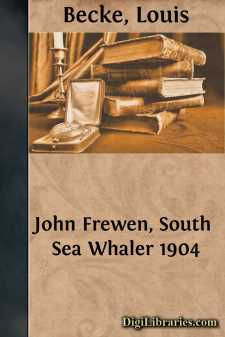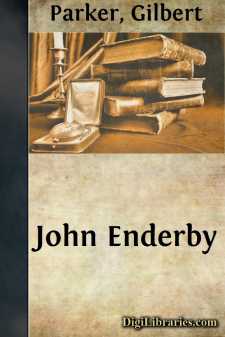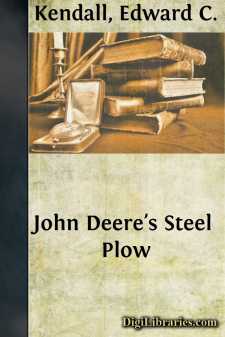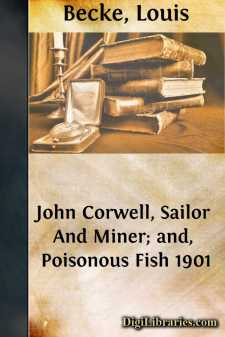Categories
- Antiques & Collectibles 13
- Architecture 36
- Art 48
- Bibles 22
- Biography & Autobiography 813
- Body, Mind & Spirit 142
- Business & Economics 28
- Children's Books 13
- Children's Fiction 10
- Computers 4
- Cooking 94
- Crafts & Hobbies 4
- Drama 346
- Education 46
- Family & Relationships 57
- Fiction 11828
- Games 19
- Gardening 17
- Health & Fitness 34
- History 1377
- House & Home 1
- Humor 147
- Juvenile Fiction 1873
- Juvenile Nonfiction 202
- Language Arts & Disciplines 88
- Law 16
- Literary Collections 686
- Literary Criticism 179
- Mathematics 13
- Medical 41
- Music 40
- Nature 179
- Non-Classifiable 1768
- Performing Arts 7
- Periodicals 1453
- Philosophy 64
- Photography 2
- Poetry 896
- Political Science 203
- Psychology 42
- Reference 154
- Religion 513
- Science 126
- Self-Help 84
- Social Science 81
- Sports & Recreation 34
- Study Aids 3
- Technology & Engineering 59
- Transportation 23
- Travel 463
- True Crime 29
Sort by:
by:
Louis Becke
CHAPTER I Captain Ethan Keller, of the Casilda of Nantucket, was in a very bad temper, for in four days he had lost two of the five boats the barque carried—one had been hopelessly stove by the dreaded "underclip" given her by a crafty old bull sperm-whale, and the other, which was in charge of the second mate, had not been seen for seventy hours. When last sighted she was fast to the same...
more...
JOHN FORSTER. A MAN OF LETTERS OF THE OLD SCHOOL. One of the most robust, striking, and many-sided characters of his time was John Forster, a rough, uncompromising personage, who, from small and obscure beginnings, shouldered his way to the front until he came to be looked on by all as guide, friend and arbiter. From a struggling newspaperman he emerged into handsome chambers in Lincoln's Inn...
more...
We observe today not a victory of party but a celebration of freedom. . . symbolizing an end as well as a beginning. . .signifying renewal as well as change for I have sworn before you and Almighty God the same solemn oath our forbears prescribed nearly a century and three-quarters ago. The world is very different now, for man holds in his mortal hands the power to abolish all forms of human poverty...
more...
by:
Gilbert Parker
I Of all the good men that Lincolnshire gave to England to make her proud, strong and handsome, none was stronger, prouder and more handsome than John Enderby, whom King Charles made a knight against his will. "Your gracious Majesty," said John Enderby, when the King was come to Boston town on the business of draining the Holland fen and other matters more important and more secret,...
more...
COCKENOE-DE-LONG ISLAND. The victory of Captain John Mason and Captain John Underhill over the Pequots on the hills of Mystic, in 1637, in its results was far greater than that of Wellington on the field of Waterloo. This fact will impress itself in indelible characters on the minds of those who delve into the historical truths connected with the genesis of our settlements, so wide spreading were the...
more...
CHAPTER I THE COMING OF JOHN DENE "Straight along, down the steps, bear to the left and you'll find the Admiralty on the opposite side of the way." John Dene thanked the policeman, gave the cigar in his mouth a twist with his tongue, and walked along Lower Regent Street towards Waterloo Place. At the bottom of the Duke of York's steps, he crossed the road, turned to the left and...
more...
John Deere in 1837 invented a plow that could be used successfully in the sticky, root-filled soil of the prairie. It was called a steel plow. Actually, it appears that only the cutting edge, the share, on the first Deere plows was steel. The moldboard was smoothly ground wrought iron. Deere's invention succeeded because, as the durable steel share of the plow cut through the heavy earth, the...
more...
Mr Harwood and Alethea in Sherwood Forest, and Jack Deane’s First Adventure. Romantic Sherwood! Its pristine glories since the days when bold Robin Hood and his merrie men held sway within its borders, and levied taxes from the passers-by, had sadly dwindled even in the year 1696, when our history commences. The woodman’s axe had been busy and the plough had gone over the land, and mansions and...
more...
by:
Louis Becke
"Am I to have no privacy at all?" demanded the Governor irritably as the orderly again tapped at the open door and announced another visitor. "Who is he and what does he want?" "Mr. John Corwell, your Excellency, master of the cutter Ceres, from the South Seas." The Governor's brows relaxed somewhat. "Let him come in in ten minutes, Cleary, but tell him at the same time...
more...
by:
Anthony Trollope
Chapter I Folking Perhaps it was more the fault of Daniel Caldigate the father than of his son John Caldigate, that they two could not live together in comfort in the days of the young man's early youth. And yet it would have been much for both of them that such comfortable association should have been possible to them. Wherever the fault lay, or the chief fault—for probably there was some on...
more...











